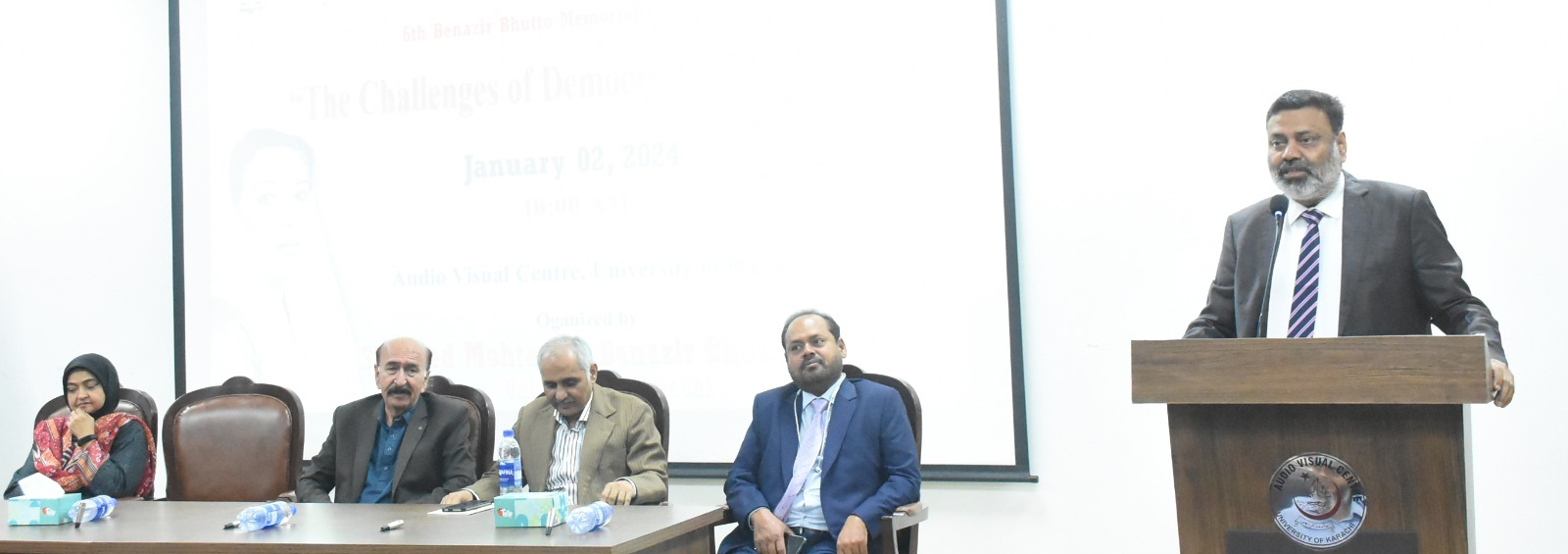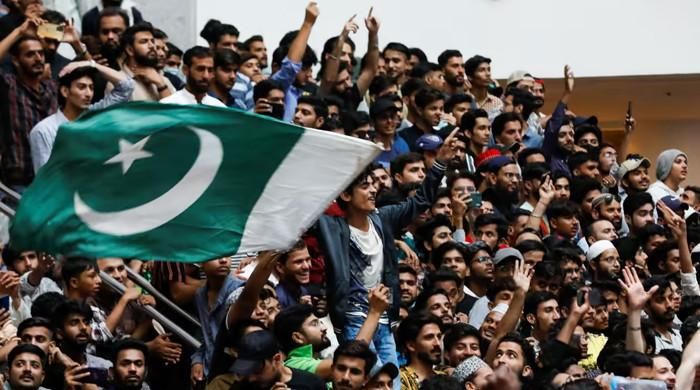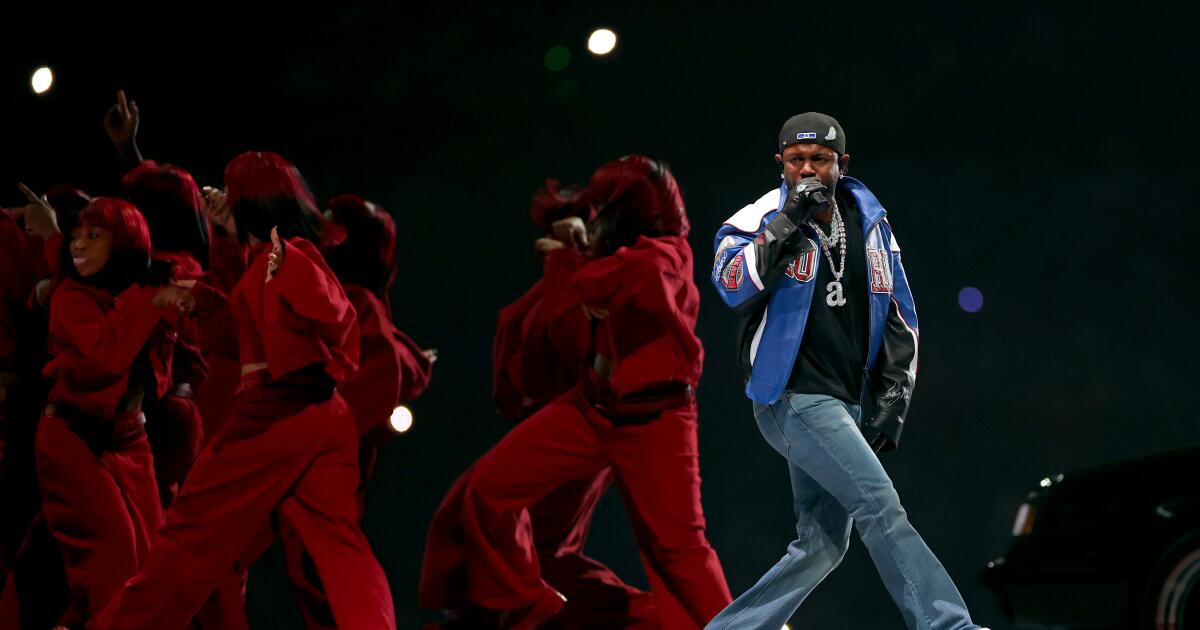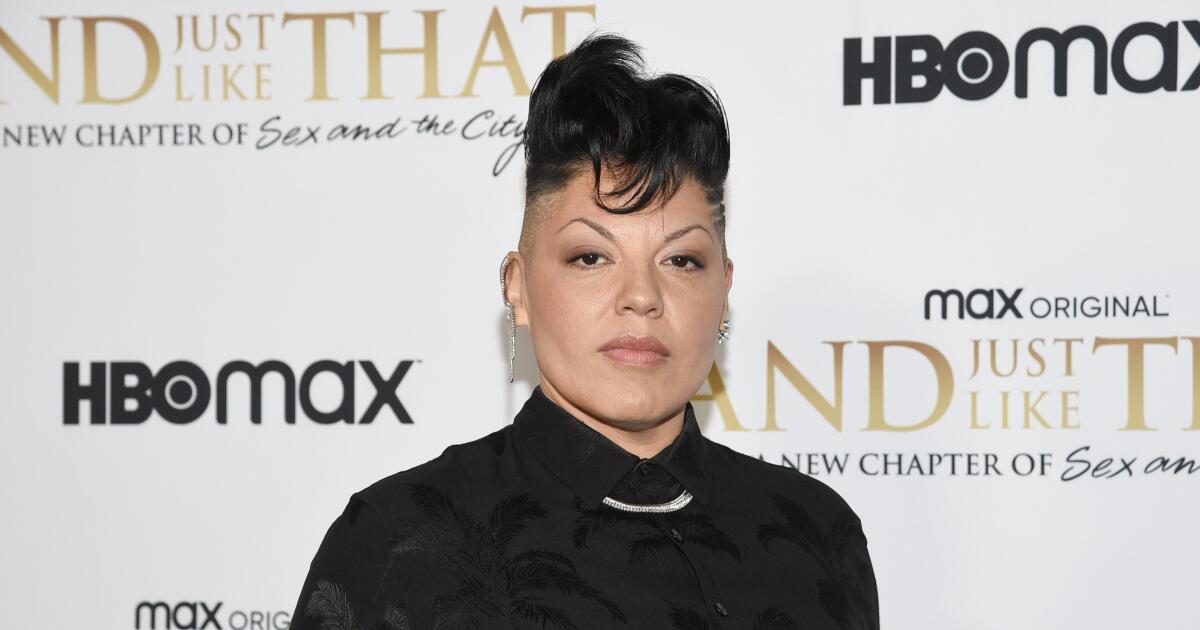With general elections scheduled for February 8, a panel of experts from the University of Karachi (UoK) discussed the challenges facing Pakistan’s fragile democracy.
UK President Shaheed Mohtarma Benazir Bhutto (SMBB) on Tuesday organized the sixth Benazir Bhutto Memorial Lecture on “The Challenges of Democracy in Pakistan”.
Professor Dr Riaz Ahmed Shaikh, Dean, Faculty of Social Sciences and Education, Shaheed Zulfikar Ali Bhutto Institute of Science and Technology, Karachi, said that no democracy thrives in any tribal and feudal society.
The seeds of democracy are found in a society that has industrialization, human compassion and human rights, he said.
He mentioned that Pakistani society is still divided by tribalism and feudalism and the biggest danger is extremism, which has created more cracks in our society.
“In such a scenario, democracy would always remain weak in the country.”
Professor Dr. Shaikh observed that universities are one of the major platforms that help promote democratic values and their process in the society and culture of debate is essential in this regard.

Another speaker, renowned journalist Nazir Laghari, said that the separation of the then East Pakistan was not a political mistake but was deliberately separated.
“The military dictatorship has always played with the country’s constitutions and has surpassed democratic governments for its benefit,” said the journalist.
He informed the audience that the opposite of democracy is dictatorship and that Pakistani democracy has always been under attack.
Laghari shared that the interest of the public was among the priorities of the previous governments, but after a few years of the creation of our motherland, these preferences have diminished and have now almost disappeared.
The veteran journalist said that after the creation of Pakistan, all the then prime ministers who were opposed to handing over Pakistani rivers reached an agreement, while one dictator reached a quick agreement with a financial institution and put the future of Pakistan in Darkness.
“Unfortunately, the Pakistani establishment ensures the protection of its interests by appointing certain political figures to key positions in political parties.”
Meanwhile, Professor Dr Khalid Mahmood Iraqi, Vice-Chancellor of KU, said that the middle class is not visible in Pakistani politics, while in the United States, Britain, India and other Western countries, the middle class is part of politics and has access to assemblies. .
The presence of the middle class in the assemblies is a sign of political stability, he highlighted.
“One of the reasons for the development of our neighboring country India is the abolition of feudalism through agricultural reforms, while Pakistan still seems unable to get rid of feudalism.”
The KU VC observed that within our system there is a lack of accountability and responsibility scenario and it is one of the main causes of our weak democratic and political structures.
Speaking on this occasion, Dr Shaista Tabsum, Dean, Faculty of Arts and Social Sciences, KU, said that one of the reasons for the failure of the democratic system in Pakistan is the undemocratic nature of political parties.
He observed that the political elites and the masses have no direct connection and the leaders will meet the public during election campaigns and a couple of other occasions.
Tabusm warned that if people want political reforms in the country, then they have to promote education and create awareness about citizens’ rights.
“In addition to this, there is also a need to carry out reforms in political parties.”












